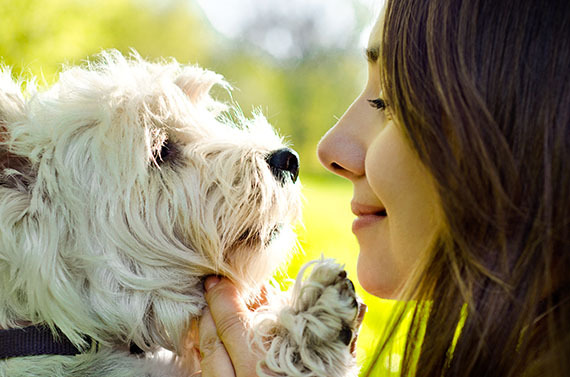 A while back, I watched a television special where singer Sheryl Crow was discussing the process of songwriting and producing music. At one point she mentioned working with another person, and smiled as she said they were "sympatico." She described a relationship where each seemed to feel what the other was feeling and know what the other was thinking, in such a way that allowed the creative process to flow freely. Like so many other things, this made me think of dogs.
A while back, I watched a television special where singer Sheryl Crow was discussing the process of songwriting and producing music. At one point she mentioned working with another person, and smiled as she said they were "sympatico." She described a relationship where each seemed to feel what the other was feeling and know what the other was thinking, in such a way that allowed the creative process to flow freely. Like so many other things, this made me think of dogs.
Although there's no true dictionary definition of sympatico, it's generally accepted to mean having a strong mental connection or bond; to get along; to have a mutual understanding. We've all heard stories of people who have these types of relationships with their dogs, and if we're lucky, we've been those people. I've had friends over the years whose dogs knew when they were feeling sad, and would come over and nuzzle or otherwise comfort them. Then there are the dramatic stories where an owner-dog bond is so strong that the dog lays down his life for the owner, or won't move from the place the owner has died.
As much as I hate to admit it, although I've had dogs I absolutely adored, and one named Mojo who will forever be my soul dog, I never had that truly sympatico type of relationship. Take Soko, the German Shepherd who was Mojo's buddy when he was alive. One winter morning, I slipped on the icy dog ramp in back of our house and went down in a most ungraceful heap. My ankle was twisted beneath me at a horribly painful angle, and it felt as though it might be broken. The pain was excruciating. I began to cry. What did Soko do? Did she whimper, whine, look concerned, or nuzzle against me to offer solace? Did she, in an act of inspired canine wisdom, dash indoors and dial 911 with her paw? No. She disappeared around the corner of the house, only to return moments later...with her tennis ball! She dropped it at my feet as if to say, Since you're down here anyway, why not toss a few? It was disappointing, to say the least.
I always felt badly for students in my group classes who seemed to have little or no bond with their dogs. It was difficult for them to master obedience skills together, because their communication was sorely lacking. Neither seemed to understand the other, and there was frustration on both sides. If there were a word for the opposite of sympatico--perhaps nonpatico?--that was them. Of course, with encouragement and coaching on how to work and communicate better together, relationships can improve. But some bonds are just effortlessly special.
I said earlier that I'd never had a truly sympatico type of relationship with my dogs--that is, until Sierra. I was absolutely crazy about her and somehow knew she was mine from the moment I saw her at the desert shelter where she'd been impounded as a stray. Ours was a strong, immediate bond. In the months that followed her adoption, we worked through her separation anxiety (yes, there can be too much of a bond), did lots and lots of training, and learned gradually about each other. Her prey drive was so high that at first I thought I'd never be able to allow her off leash, lest she spy a squirrel and cease to remember I existed. But now in the mornings I let her run loose over park trails. She happily bounds up and down hillsides and races around dirt tracks, but always looks back to check where I am. And she always comes when I call.
As for Sierra's ability to sense my moods? Well, I'm normally a fairly strong, balanced person emotionally, but last week I had a bit of a meltdown. The trials and tribulations of caregiving for two elderly parents who are both seriously declining at once are exhausting. After receiving some especially bad news by phone, I hung up, sat at the kitchen table, and just lost it. My other dog, Bodhi, stayed a short distance away and circled nervously, apprehensive about those weird noises that were coming out of Mom. Sierra ran to me. She sat in front of me, looking up in a way that I can only describe as very concerned, and kept pawing at my leg. Now, she does paw when she wants her chest rubbed, and through my tears, I automatically complied. It calmed me. But it was more than her wanting affection; there was real worry in her eyes. There have been many other instances of our being in sync, but really, it's more of a constant, everyday type of thing. It's the ease of a relationship where you don't have to try so hard, the natural rhythm of simply being in tune--the type of thing we look for in a life partner. I'm lucky to have that in my husband, and now, happily, I finally have it in a canine companion as well.
Nicole Wilde is an award-winning author of ten books on canine behavior. You can find her books and seminar DVDs at www.nicolewilde.com and find her on Facebook.
